Furman University
2019 President’s Report




Cultivating
Competing



Furman University
2019 President’s Report




Cultivating
Competing


“The imposing edifice of science provides a challenging view of what can be achieved by the accumulation of many small efforts in a steady objective and dedicated search for truth.”
CHARLES TOWNES , father of the LASER, Nobel Prize-winner in physics and 1935 Furman University graduateThe Furman Advantage is a simple idea: Combine emotional support and engaged learning with outstanding mentoring and excellent academics. Track and connect it all –thoughtfully and purposefully – and students will graduate ready to pursue fulfilling lives.
But explaining this can be difficult. So, I asked our communications team to develop an infographic (page 9). The image is a combination of rings representing the different components of The Furman Advantage — classroom learning, mentoring and advising, engaged learning and career/ graduate preparation. At the center – at its core – is “reflection.”
Reflection powers The Furman Advantage, and it drives the change, growth and understanding that our students experience in their four years at Furman.
We launched The Furman Advantage in the fall of 2016 with $47 million from The Duke Endowment. It is our promise to provide every student with an educational experience that will prepare them for meaningful and successful lives and careers.
So, as we look back on this past year, celebrate our accomplishments, and think about the future, we reflect on our calling, with a reminder to always focus on students and the student experience.
The research shows that this approach works. In the national Furman-Gallup study launched nearly two years ago, Furman alumni across generations report having had higher-than-national-average levels of the emotional and engaged learning experiences that make up Gallup’s “Big Six” indicators for well-lived lives.
Moreover, Furman alumni score at least 14 points higher than the national average in each of the five indicators of well-being. On campus, our faculty and staff are in the top 5% of the most engaged employees in higher education and the top 25% across all industries — both off the charts, according to Gallup. Why is this important? Because the No. 1 driver of student engagement is faculty engagement.
The research is also showing us areas where we can improve — and we’re on it. We’re increasing our efforts to build affinity and to prove the value of a Furman degree. We’re also building an ecosystem of career support for students, with such discussions starting when students arrive at Furman and continuing through their four-year pathways.
As you can see in the following pages, we’ve made great strides in a number of areas, including increasing our community connections and diversity and inclusion, all of which are critical to providing the educational experience our students deserve and need to become engaged and responsible citizens.
Please join us in reflecting on our calling and looking ahead to an ambitious future.

#46 Best National Liberal Arts Colleges

#12 Best Undergraduate Teaching
# 3 Best Colleges for Veterans
Furman University is consistently ranked among the nation’s top colleges. Whether the accolades involve outstanding academics, affordability, meaningful interactions between faculty and students, a commitment to sustainability, student success or a beautiful campus, you’ll find Furman listed among the best.
U.S. News & World Report ranks the university as the top-rated liberal arts and sciences institution in South Carolina and includes it among “The Most Innovative Schools” in
the country. Furman is also recognized as one of the nation’s “greenest” and most environmentally responsible colleges, appearing in the Sierra Club’s “Cool School” rankings and earning a STARS gold rating from the Association for the Advancement of Sustainability in Higher Education. And you can't beat Furman’s campus, which recently made Architectural Digest’s “The 50 Most Beautiful Colleges in America,” as well as House Beautiful’s “30 of the Most Beautiful College Campuses in the World.”

# 4
MOST POLITICALLY ACTIVE STUDENTS
The Princeton Review
#17
MOST ACCESSIBLE PROFESSORS
The Princeton Review
THE BEST 384 COLLEGES
The Princeton Review
# 9
BEST SCHOOLS FOR MAKING AN IMPACT
The Princeton Review
# 21
TOP COLLEGES IN THE SOUTH Forbes’ “America’s Top Colleges”
AMONG
The Princeton Review

“We developed emotional bonds through our teams, organizations and classes and met groups of people who, if we had not met them, our lives would be radically different.”
— IMANI-GRACE KING ’19
Key Account Manager at DFS Creative Concepts
© 2019 Furman University

President Elizabeth Davis launched The Furman Advantage in 2016 with $47 million from The Duke Endowment.
We know that graduates who are emotionally supported and have deep learning experiences in college are three times more likely to be engaged at work and thriving in life.
At Furman, we build on our historic strengths to guarantee all students an unparalleled education that combines classroom learning with real-world experiences and self-discovery.
This integrated four-year pathway, guided by a diverse community of mentors, prepares students for lives of purpose and accelerated career and community impact — demonstrating in concrete terms the value of a Furman education.
This is THE FURMAN ADVANTAGE.
YEAR ONE: EXPLORE & DISCOVER
• Settle into a new environment and gain a sense of belonging
• Connect with your adviser
• Begin to discover skills, interests and goals through academic coursework and activities
YEAR TWO: EXAMINE & DECIDE
• Prepare for engaged learning opportunities through coursework and conversations with advisers and mentors
• Begin to explore opportunities in engaged learning
• Select a major that meets life and career goals
YEAR THREE: CONNECT & REFINE
• Focus area of study through classroom learning, reflection, mentors and advisers

• Select engaged learning such as an internship, study away, research or community project
• Apply knowledge and skills to meet real-world challenges
YEAR FOUR: SYNTHESIZE & INITIATE
• Reflect upon experiences
• Integrate all you have done to create your narrative for employers and graduate schools
• Graduate ready to pursue meaningful lives and careers
REFLECTION
Mentors, faculty and advisers encourage students to reflect on their experiences to make informed decisions about their paths.

Are we fulfilling our promise and providing lifelong value to graduates? In what ways? Are there gaps?
With support from The Duke Endowment, Furman University partnered with Gallup to raise these questions, establish a baseline and develop a plan forward. Since the partnership began, we have surveyed our students, alumni, faculty and staff to measure engagement.
With our alumni study, we have identified historic strengths that have produced Furman graduates who, compared to national averages, are
highly engaged at work and thriving in life. But in what ways do we build upon these strengths? How do we ensure that every student benefits from The Furman Advantage?
Our students and graduates have an advantage. From professors who care about their students to strong mentors who encourage them to pursue their goals and dreams, Furman University surpasses the national average in Gallup’s “Big Six” college experiences. Positive experiences in these six areas mean that our alumni are more likely to be engaged at work and thriving in their lives.
Strongly agreed they had “professors who cared about me as a person”
Strongly agreed they “had at least one professor who made me excited about learning”
Strongly agreed they “had a mentor who encouraged my goals and dreams”
Strongly agreed they “had a job or internship that allowed me to apply what I was learning in the classroom”
Strongly agreed they “worked on a project that took a semester or more to complete”
Strongly agreed they were “extremely active in extracurricular activities”

96% placement rate six months after graduation (employed or in graduate school)

34% of most recent year graduates enrolled in graduate school or another university in the fall semester
ACCENTURE
AMAZON AMERICORPS
BOOZ ALLEN HAMILTON
DELOITTE
ERNST & YOUNG
IBM
JET PROGRAM USA
JP MORGAN CHASE & CO.
MERRILL LYNCH
NATIONAL MARINE SANCTUARY FDN.
PEACE CORPS
PENGUIN RANDOM HOUSE
PRISMA HEALTH
PROJECT HOPE
PWC
QUALTRICS
S&P GLOBAL
SALESFORCE
SCANSOURCE
TARGET CORP.
TEACH FOR AMERICA
URBAN INST.
U.S. CONGRESS
U.S. DEPT. OF DEFENSE
U.S. DEPT. OF JUSTICE
WELLS FARGO
Our alumni consistently report having benefited from Gallup’s “Big Six” emotional support and engagedlearning experiences. The “Big Six,” which reflect best practices in higher education, mirror Furman’s challengeand-support model: the academic vision undergirding The Furman Advantage.
Compared to the national average, Furman alumni are three times more likely to be thriving in their lives and well-being. In fact, among Gallup’s five well-being indices – purpose, social, financial, community and physical –Furman alumni scored at least 14 points higher than the national average.
Furman faculty and staff engagement results place us in the top quartile for workplace engagement. As Gallup’s research in higher education has revealed, faculty and staff engagement is the No. 1 driver of student engagement.
By leveraging our strengths and addressing any gaps, we’re excited to see in real numbers the impact that The Furman Advantage is having for our students and graduates. Our research will guide us in getting even better at what we do.
ALREADY ...
• We’re doubling down on our efforts to build affinity and prove the value of a Furman degree.
• We’re placing more emphasis on developing lifelong habits of reflection.
• We’re building an ecosystem of career support for students with earlier and multiple touch points during their four-year pathways.
• And we’ll continue to measure and report on how we’re doing to ensure we’re delivering on our promise.
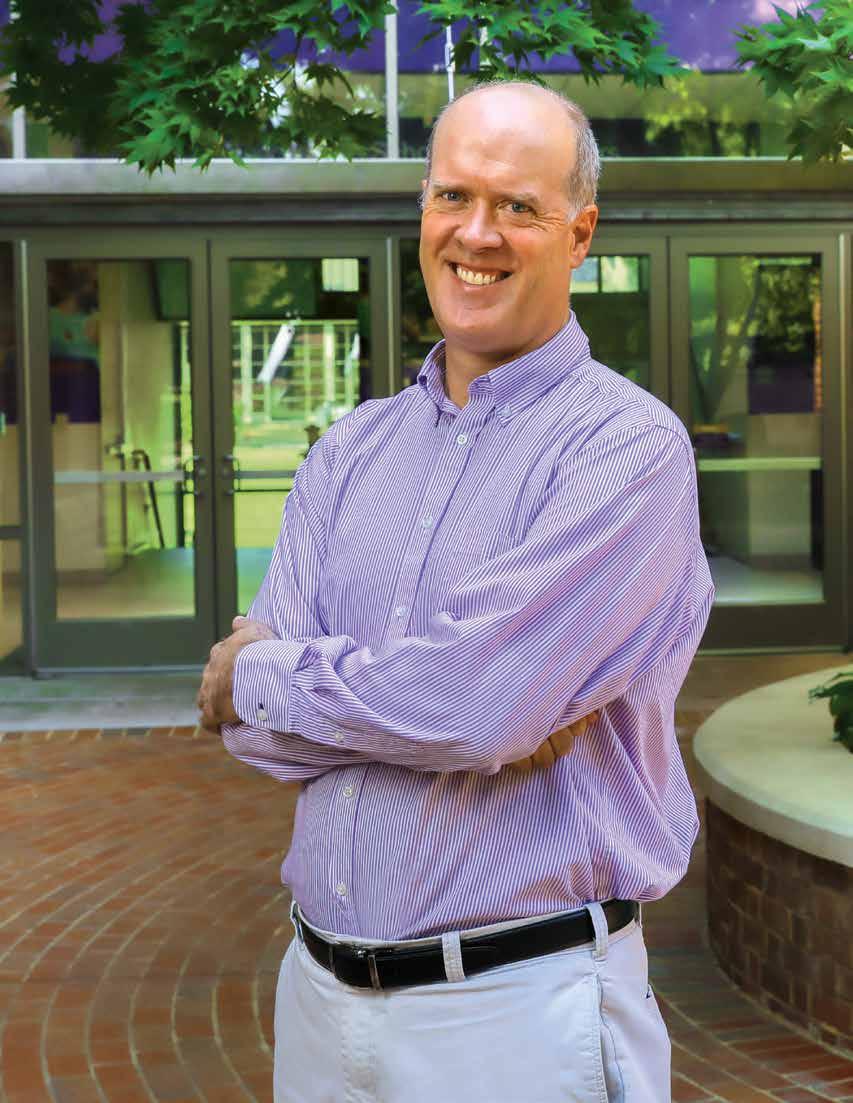
“While many students come into Furman with definite views on their futures, giving them the space to explore is crucial to the Pathways experience, and I have enjoyed being part of their educational and personal journeys.”
— GEORGE LIPSCOMB Professor of Education

provided by the Council of Independent Colleges and the Lilly Endowment, supports the development of academic department programming and resources. The grant is specifically focused on professional development and reflection on careers and life after Furman. A workshop over the summer focused on giving faculty the resources and support to refine their department’s curricular and co-curricular offerings. The goal: to meet their students’ needs and to extend their pathways into majors.
From studying Shakespeare at Stratfordupon-Avon to mentoring underserved kids at a local farm, our students fully immersed themselves in real-world challenges. These experiences – an internship, study away, research or community project – are what engaged learning is all about. And each one brings students closer to defining their purpose after graduation.
The Internship Office has expanded its Sophomore Engaged shadowing program to Atlanta. About 20 alumni and friends of Furman hosted students in their places of work, which included Keysight
Technologies, Indeed.com, Home Depot's corporate office and the Centers for Disease Control and Prevention.
The breadth and depth of Furman’s Engaged Learning Program was demonstrated in April at the 11th annual Furman Engaged!, a day-long celebration of immersive learning experiences. More than 600 students presented, while more than 1,200 students, faculty, staff, alumni, parents and community members attended sessions.
Throughout the day, we saw tangible evidence of what students learned about their disciplines and about themselves. The following month, about 300 students participated in a MayX study away program — from studying biology in Ecuador to environmental issues in China to slow food in Italy. More than 200 participated in a semester study away program.
The Center for Engaged Learning
oversees and facilitates these high-impact, co-curricular opportunities. This year, it supported more students over the summer through the summer fellows program. The number of undergraduate

The results are everywhere — in the survey data, in the engaged learning experiences, and in each immersive, defining experience that lays the groundwork for a meaningful four years. But for those who are a part of a pilot program, it all starts with a two-year advising plan that students enter their first year to ease their transition to college and explore their individualized pathway. For those students, the promise of The Furman Advantage unfolds from there through student-faculty research, study away, community engagement, internships and direct connections to employers.
A life of purpose does not take shape by accident. Furman students are on a four-year pathway, synthesizing what they learn both in and out of the classroom, informed by conversations with mentors and advisers, and using their engaged learning experiences to refine their values,
interests and skills. Reflecting on these experiences advances students’ sense of purpose and prepares them to pursue a life of impact, whether in graduate school, professional school or employment.
The first cohort of the two-year Pathways Advising Program – made up of 85 students, seven faculty advisers and one staff adviser – has now completed the second year, while the second cohort –made up of 142 students, six faculty and six staff advisers, and two peer mentors – has completed its first year. The good news is that across both cohorts, students reported greater satisfaction with advising, an increased sense of belonging and higher scores on items measuring resilience. These students also rated themselves as having a greater sense of purpose.
Meanwhile, advisers reported forming deeper relationships with their first-year advisees in the Pathways program. For third- and fourth-year students, a Network for Vocation in Undergraduate Education Program Development Grant,


research fellows increased 23%, and summer internship fellows rose by 40%. Summer research fellows conduct full-time research on campus for eight to 10 weeks. Summer internship fellows work full time for eight to 10 weeks in Greenville, South Carolina, Washington, D.C., Atlanta, Georgia, other U.S. cities, and abroad. The Internship Office assists students in locating and applying for summer and academic-year internships.
The Office of Undergraduate Research supports student-faculty research collaborations, and Furman’s undergraduate research efforts in all disciplines have earned national prominence.
A broad variety of indicators show that Furman is particularly strong in undergraduate research in the math and sciences. These indicators include more than 150 students who engage in summer research from math/science disciplines, a high rate of success in earning highly competitive federal grant funding, student/faculty coauthored publications in highly regarded, peer-reviewed journals across multiple disciplines, and national recognition of student and faculty excellence through numerous individual awards.
This year, the Paladin Career Treks program brought students experiences spanning a variety of sectors. Students on the science and technology trek visited BioLabs, Inc., GlaxoSmithKline and AgBiome in the Raleigh-Durham area of North Carolina. Students on a fall trek to New York City visited major employers, such as Wells Fargo, Bank of America Merrill Lynch and Penguin Random House. A pre-law trek took students inside the U.S. Supreme Court, while closer to home, a nonprofit trek showed students the inner workings of United Ministries, the Kroc Center and United Way.
Students met with staff members from the organizations, learned from a panel of industry professionals and discussed failure, overcoming adversity and the diverse career possibilities that nonprofits offer.
This fall, the Center for Engaged Learning, the Internship Office and the Malone Center for Career Engagement will offer students an Opportunity Fair. The inaugural fair targets organizations with a broader regional and national presence and connects students directly with organizations, allowing students and alumni to explore internship and full-time career opportunities.

81%
of the class of 2019 “strongly agree” that they had at least one professor who made them excited about learning

92%
of the class of 2019 reported having an engaged learning experience at Furman
72%
of the class of 2019 “strongly agree” or “agree” that they had an internship or job that allowed them to apply what they were learning in the classroom
54%
of the class of 2019 participated in a semester-long or MayX study-away program
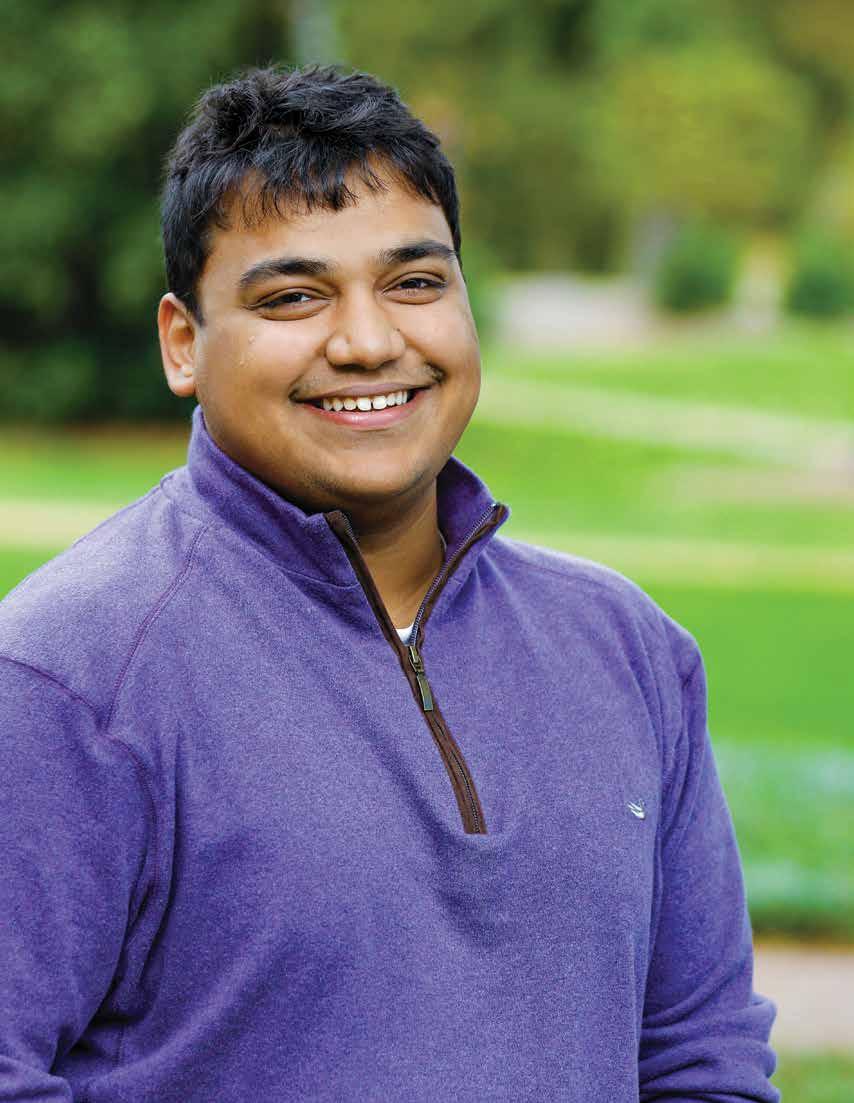
“Furman challenges you to be the best version of yourself — to venture out of your comfort zone, delve into experiences in and outside of the classroom, and really grow as a person.”
— RISH AGARWAL ’19 Graduate Student at the Wake Forest School of Business
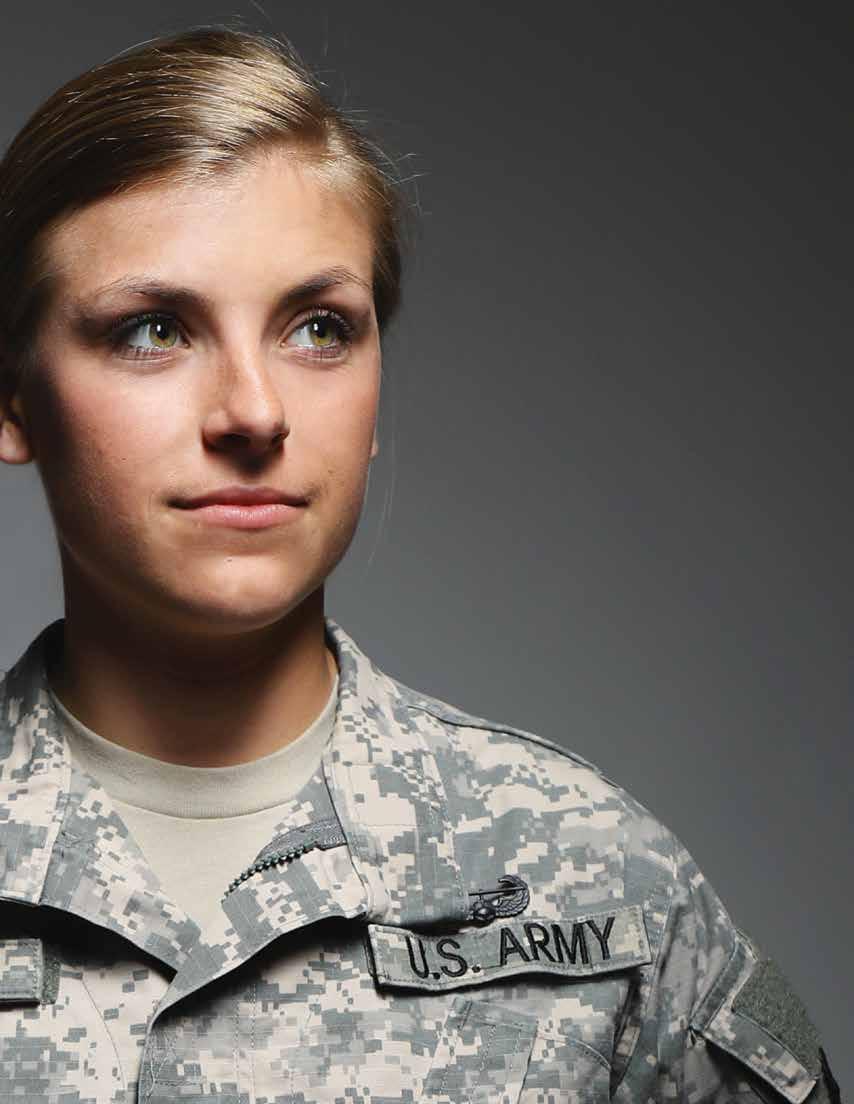
Something brought them here. From neighboring counties to far-off countries. Furman is known for attracting ultracurricular students. It’s here that their need to achieve and driving desire to discover is embraced. Learning and training alongside renowned faculty and guided by a dedicated team of mentors and advisers, Furman students forge their own four-year pathway through more than 60 areas of study, undergraduate research, study away and internship opportunities.
Attracting the ultra-curricular Furman was pleased to welcome 711 firstyear students for the 2018-19 academic year. These students are some of the best and brightest in the nation, with more than 40% ranking in the top 10% of their high school graduating class, an average SAT score of 1342 and average ACT score of 30. Joining these first-year students are 20 transfer students.
This class is one of the most diverse groups of students in the university’s history, with 22% domestically diverse students and 5% from outside the United States. Furman continues to foster an environment where students with different backgrounds and perspectives find success through a combination of outstanding academics, dedicated mentoring and powerful career preparation opportunities.
Diverse backgrounds and perspectives
2,768 UNDERGRADUATE STUDENTS
Men: 41%
Women: 59%
• African-American: 7%
• Asian: 2%
• Hispanic: 6%
• White: 76%
• Multiracial or other: 5%
• Total diversity: 22%
International: 3.5%
First-year: 3.1%
First-year Class
• African-American: 7%
• Asian: 3%
• Hispanic: 5%
• White: 78%
• Multiracial or other: 5%
41 STATES REPRESENTED
29 COUNTRIES REPRESENTED
102 GRADUATE STUDENTS
APPLICATIONS: 5,469
OFFERS OF ADMISSION: 3,339
ENROLLED: 731
COST OF ATTENDANCE (2018-19)
Tuition $49,152
Fees $380
Room (average) $7,680
Board (average) $5,758
Total Direct Costs $62,970
2,768 UNDERGRADUATE STUDENTS

14 AVERAGE CLASS SIZE
10:1 STUDENT-TOFACULTY RATIO
After graduation, Madison Schoen ’17 joined the U.S. Army as an active-duty engineer officer.
with faculty and community partners who could help them both understand why such social issues permeate and to reflect on how their experience influenced their individualized pathways.
Each year, new students arrive at Furman. They are not only new to our community, but new in their life experiences, in the style of parenting they received, and in the diverse composition of those they lived, learned and played with in the years preceding college. Our students should
be met each year by faculty who not only reflect academic achievement through the degrees they’ve earned, but also by the lives they've lived along the journey. Whether a student is the first in their family to go to college or a third-generation Paladin, a student of color or a white student, a Christian student or one who professes a different faith or no faith at all, an LGBT+ student, a rural student or of any other myriad of lived experiences, they look to find a mentor who models that the college transition can bloom
into a life well-lived. And more often than not, students seek a mentor who has a common connection to that transition. It is why a 10:1 student-to-faculty ratio is so critical to Furman’s educational success. In 201617, we hired 13 tenure-track faculty, 11 of whom increased our diversity. In 2017-18, we hired 19 tenure-track faculty; 14 were diverse hires. Using an open-rank search similar to the strategies employed by search firms seeking out top talent, we hired two full professors and four associate professors.

Throughout history, the liberal arts and sciences were dedicated to developing an educated citizenry for the betterment of society. As our institutions opened their doors beyond a privileged subset of individuals, that mission evolved and strengthened. Underrepresented voices and ideas challenged previously unexamined notions of societal progress. And our educated citizenry began to reflect and equitably engage in their communities. Accordingly, diversity became the engine that allowed liberal arts and sciences to not only be relevant in the current age but also to excel in its mission.
This past year, Furman undertook efforts to understand who it historically privileged at the expense of others and how we can remove barriers to access and achievement.
Since launching The Furman Advantage in 2016, Furman has adapted its critical analysis of the student experience to better deliver on its promise. The conversation pushed Furman to the forefront of universities talking about student belonging. We developed a strategic plan to match a servant
heart with a knowledge of privilege, community engagement and leadership to allow our students to build coalitions of citizens willing to work toward equitable social change across the spectrums of economics, race, political affiliation, religion, ability, sexuality, regionalism, gender identity and more.
Out of this plan came the launch of the Center for Inclusive Communities in 2017. Its two goals are to enhance student flourishing by supporting the immediate and long-term success of Furman’s historically underrepresented students, using current research on belonging, well-being and career engagement; and to develop engaged citizens by making real the citizenship promise of a liberal arts and sciences education, graduating students who appreciate difference, value community and are prepared to make a lasting impact.
Faculty, students and staff worked to translate hallmark programs at state public flagships to the liberal arts and sciences experience. The result launched academic courses and co-curricular workshops that bring individuals who have historically been at odds together to dialogue across their differences. We have celebrated heritage months to encourage students to explore their identities and invite others to learn from friends. We connected students desiring to do service during school breaks
Baseline in July 2016 for the 2016-17 academic year:
• 35% FEMALE FACULTY
• 11.7% FACULTY OF COLOR
Estimate for the 2019-20 academic year:
• 42% FEMALE FACULTY
• 16.5% FACULTY OF COLOR
In 2019-20, we will have 237 faculty (235 in 2015-16):
• 99 FEMALE FACULTY
• 39 FACULTY OF COLOR
in a curriculum specifically designed around the challenges identified by Furman’s four-year resiliency study, with a result that students reported a greater sense of belonging and support at Furman as compared to their peers.
Finally, Furman’s university-wide effort to support students who are first in their family to attend college was recognized by naming Furman a “First Forward” campus in an inaugural cohort of institutions across the country, 16 of which were among the top 50 in U.S. News and World Report-ranked schools.
International recruitment remains a top priority for the university, as we continue to elevate the exposure and reputation of Furman around the world. These students bring not only a diversity of thought and a greater understanding of other cultures but also enable other students to learn firsthand about global issues.
We also:
• Focused recruiting efforts in Asia (China, India and Japan), Southeast Asia (Singapore, Taiwan, Thailand, Vietnam and Korea) and South America (Brazil, Colombia and Chile).
• Participated in private college fairs, presentations, workshops, case studies and small- group travel.
• Hosted workshops and webinars through EducationUSA Advising Centers.
• Partnered with Sichuan University in Chengdu, China, and five high schools in Mexico to increase scholarship offerings.
• Brought the AGAPE English Language Institute to Furman to support English proficiency for incoming international students.
• Collaborated with 17 United World Colleges high schools to expand recruitment.

With the support of the Board of Trustees and the president and provost, the Task Force on Slavery and Justice was formed in the spring of 2017 to examine Furman University’s historical connections to slavery and to help Furman better understand and learn from its past. This pursuit
In October 2018, the Board of Trustees accepted the task force report, “Seeking Abraham,” endorsed expanding the Joseph Vaughn Scholarship to a $1 million annual award, and designated $3 million in endowment to ensure it is offered in perpetuity, and they encouraged the administration and faculty to move forward in considering the report’s other
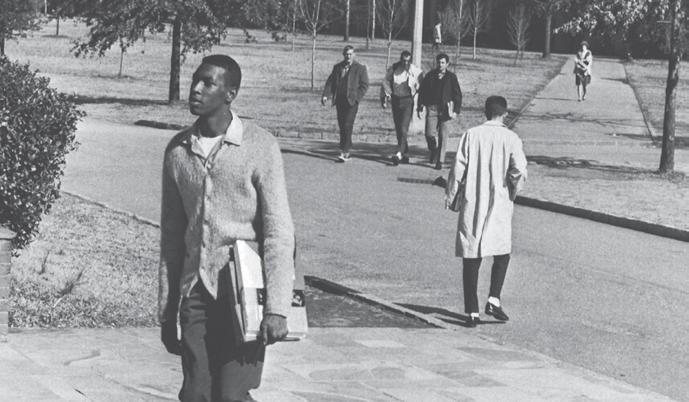
built upon Furman’s principles as an academic institution that embraces liberal arts and sciences ideals, including a high regard for human value, reflection, innovation and ceaseless accuracy. The process was guided by scholarship and undergraduate research in communication studies, history, sociology and sustainability, among other departments, and led by students, faculty, staff and alumni.
We cannot change history, but we can show in real and meaningful ways that we are true champions of a more inclusive future.
recommendations not under the board’s purview, including curriculum and co-curricular activities and programming.
In May 2019, the university announced that the board unanimously approved additional recommendations, including removing the name of the university’s first president, James C. Furman, from the building located at the heart of campus, and renaming it Furman Hall, in honor and celebration of the entire Furman family and all of the students, faculty, staff and alumni who have contributed to the history of the university.
Read the “Seeking Abraham” report to learn more about the approved recommendations at furman.edu/tfsj.
The pace of growth Students’ maturation from adolescence to adulthood requires scaffolded challenges and timely support. Without academic and social challenges, students fail to grow. However, too much challenge without support may be overwhelming. Furman professors and staff understand that determining when to push and when to intervene is as complex as each student’s individualized path.
Based on data from Furman’s four-year resiliency study funded by The Duke Endowment, support groups were launched for students dealing with sexual trauma, the loss of loved ones, and anxiety and stress. Additionally, Furman recently hired three professionals of color into senior roles at our counseling and health centers and added groups that provide space for students to explore their transgender identity as well as black identity.
In concert with the Associated Colleges of the South, Furman professors developed inclusive pedagogy workshops that trained nearly a quarter of our faculty. Safe Zone trainings prepared professors and practitioners to support LGBT+ students. The Pathways Advising Program, a first- and second-year advising model, welcomed a second cohort of students to participate

While Furman is one of the smallest universities in Division I athletics, the Paladins have always performed above their weight class. The football team won the 1988 Division I-AA national championship, the first private school to do so, and the golf program has produced such great players as Betsy King ’77, Beth Daniel ’78, Brad Faxon ’83 and Dottie Pepper ’87. The men’s soccer team regularly appears in the national rankings, and former U.S. National Team Captain Clint Dempsey is among the program’s alumni. Furman has also achieved great athletics success while excelling in academics. The program has produced two Rhodes Scholars, 35 CoSIDA Academic All-Americans and 16 NCAA Post-Graduate Scholars, and the teams regularly score well above the national average in the Academic Progress Rate, which measures eligibility, graduation and retention.
• For the fourth year in a row, Furman captured the Germann Cup, awarded annually to the Southern Conference school fielding the league’s best all-around women’s sports program.
• Men’s cross-country finished 19th, while the women finished 22nd in the final USTFCCCA Cross Country national rating index. No other school had both teams ranked in the top 22.
• The women’s programs produced three SoCon Players of the Year: Haylee Harford ’19, golf; Marissa Guimbarda ’21, softball; and Katarina Kozarov ’20, tennis.
• Men’s basketball set a school record for regular-season wins (24) and total victories (25) and became the first team in the program’s 106-year history to be ranked in the Associated Press Top 25 poll.
• Golfers Haylee Harford ’19 and Natalie Srinivasan ’20 competed in the inaugural Augusta National Women’s Amateur.


“We rode the buses and collected people’s stories so that we could become better advocates . . . and then we translated that into coming back onto campus and letting people know how important it is.”
—
SEAN RUSNAK ’18
2018-19 Health Policy Post-Baccalaureate Fellow and advocate for public transportation funding in Greenville
This year the Riley Institute’s Diversity Leaders Initiative (DLI) gained its 2,143rd Riley Fellow with the graduation of 153 leaders from the Upstate, Midlands and Lowcountry classes. DLI participants are identified through a rigorous process including a nomination, application and interview and are selected based on their capacity to impact their organizations and communities. Graduates become members of a powerful, cross-sector, statewide network that includes business leaders
and corporate CEOs; national, state and local elected officials; school superintendents, nonprofit heads, and faith and creative leaders; and many other community leaders. This year's classes launched 20 community action projects across the state, part of 260 to date. These projects, connected to countless needs and people – from public education to transportation or homelessness to foster care – make a collective impact that drives immediate and lasting benefits throughout the state.


For more than 160 years, Furman has been a vital part of Greenville’s culture, history and economy. Summer programs for children, public arts events, lectures and workshops, and continuing education opportunities enrich the lives of residents. Numerous university organizations and programs make measurable impacts on Greenville’s economy, public health, education and quality of life. They include the Office for Innovation and Entrepreneurship, the Institute for the Advancement of Community Health (IACH), the Collaborative for Community Engaged Learning, the Riley Institute, Heller Service Corps and the Shi Center for Sustainability.
The Furman Advantage is furthered by partnerships with Prisma Health, Bon Secours, the Greenville Drive and more than 70 nonprofits who serve the Upstate, creating environments where students, faculty, staff and alumni collaborate across academic disciplines to gain and apply knowledge for the public good.
A recent study conducted by Furman Associate Professor of Economics Jason Jones and student Dyson Robinson ’18 measured the university’s annual economic impact on Greenville County and the surrounding Upstate counties. Furman’s economic contribution to Greenville County in 2017-18 was $288.1 million, with another $9.1 million impacting the economies of Anderson, Laurens, Pickens and Spartanburg counties.
Furman’s Office for Innovation and Entrepreneurship is focused on developing innovative leaders who are adaptable to a workforce that demands them to either be entrepreneurs creating new ventures or entrepreneurially minded leaders driving innovation within existing organizations. Partnerships with the Greenville Chamber of Commerce’s NEXT SC program and angel investor group VentureSouth have laid the foundation to extend these contributions to the greater Greenville community. In addition to talent-development programs, such as Furman’s inaugural Business and Entrepreneurship Boot Camp, Furman is collaborating with regional and local entrepreneurial networks to develop an innovation hub and business incubator space that will bring together civic, corporate and academic institutions to colocate and accelerate the development of ventures.

Community Engaged Learning, Prisma Health Upstate, the United Way of Greenville County and Greenville County. The mobile-friendly web application is increasing awareness of and access to essential life services such as food, housing, health care and even recreational opportunities.
The university’s Medical Legal Partnership with Prisma Health Upstate and South Carolina Legal Services has helped 250 families in the Upstate. The MLP, the first of its kind in South Carolina, seeks to improve health outcomes for Upstate residents, especially those living in poverty. MLP staff, partners and student interns work to streamline access to nonmedical assistance when a medical problem is rooted in or made worse by a social or legal problem.
Funding from the Healthy Greenville initiative expanded the MLP to care for Greenville’s senior adult population. A coalition, led by Furman’s Institute for the Advancement of Community Health and partners Prisma Health Upstate and South Carolina Legal Services, tackles health-harming legal barriers in the senior adult community by improving health-related care, health education and health research. The program is funded by a three-year grant approved by the Greenville Health Authority.
The Shi Center for Sustainability’s Student Fellows Program pairs students with a community partner where they work 40 hours a week for 10 weeks over the summer on a sustainability issue. Students have engaged with partners and projects including Project Host, Upstate Forever, Trees Upstate, Mill Village Farm, Greenville Zoo, and the Cities of Greenville and Travelers Rest.
The Community Conservation Corps, another signature program of the Shi Center, partners with Habitat for Humanity to provide free home weatherization to low-income homeowners in the greater Greenville community. To date, the CCC has weatherized 135 homes. Shi Center staff presented to Greenville’s Green Ribbon Advisory Committee – Energy and Buildings Subcommittee on the CCC’s weatherization program. The CCC program continues to garner national attention.

Heller Service Corps students volunteer their time and services at 70 organizations that assist Greenville residents. Students support local schools by raising money for supplies and improvements to facilities, serving the hungry in local food banks, working with the homeless in shelters and job-search programs, mentoring Greenville’s youth and enriching the lives of residents with special needs.
Heller Service Corps is the largest student group on Furman’s campus, involving more than 1,800 students in service projects annually.
Senior Leaders Greenville, a program of the Osher Lifelong Learning Institute at Furman, graduated its fifth class in May. The program empowers participants to become active in fostering better lives
for seniors in the Upstate and equips them to be advocates for the senior population. Senior Leaders is a natural extension of OLLI, which has provided opportunities for learning, creativity, health and well-being, and personal connection to Greenville retirees for more than 25 years.
Furman students and faculty collaborated with community leaders to develop an innovative tool that will benefit the health and well-being of the greater Greenville community. Imap, a web-based mapping application that allows community members to search a database of essential services available throughout Greenville County, was developed through a partnership between Furman’s Collaborative for

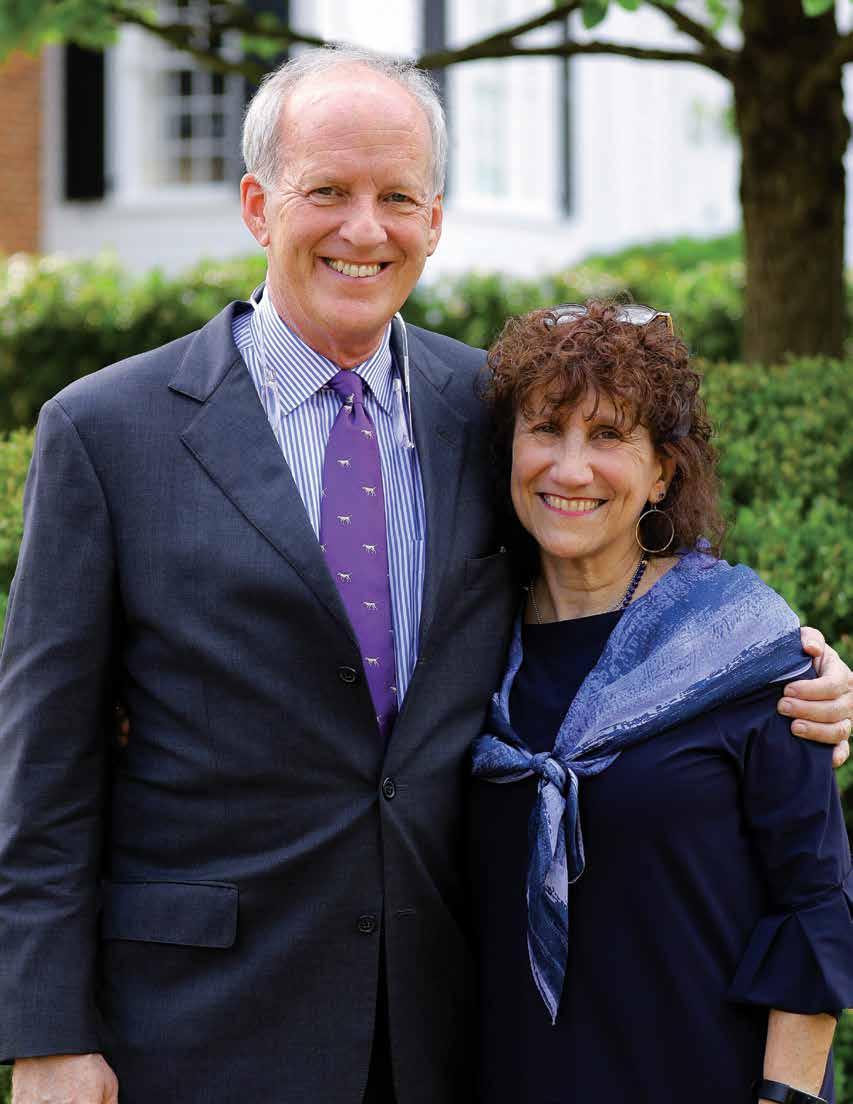
“After my wife, Susan, and I spend time with students, there’s never a question of whether we will give — it’s only a question of how much.”
— ALEC TAYLOR ’75 Furman University Board of Trustees

During the 2017-18 fiscal year, approximately $33 million was distributed from the total endowment, in accordance with the board-approved spending policy. These assets contributed approximately 21.7% to the university’s annual budget.
$9.8 MILLION endowment gifts during FY18
$33 MILLION total distribution during FY18
The Furman University Investment Office collaborates with the Furman Board of Trustees’ Investment Committee, the university’s vice president for finance and administration, the associate vice president for finance, a financial services controller and external consultants to preserve and enhance the purchasing power of the endowment and support the current and future operations of Furman.
The university has adopted an investment strategy that emphasizes the prudent management of risk, while working to generate long-term total return. Investments are diversified across a broad variety of asset classes — a strategy that, historically, has been shown to mitigate risk while enhancing portfolio performance.
Furman’s generous alumni, parents and friends form the cornerstone for our success as a top liberal arts and sciences university. Contributions to the endowment provide a steady and reliable source of financial support to help the university offer The Furman Advantage to every student. As the university enters its next chapter, private support will be vital to advancing the mission of Furman and equipping students to make an impact — now and for generations to come.
During the 2018-19 fiscal year, more than 8,700 donors contributed $32.6 million in support of student scholarships and experiences, including internships, research and study away opportunities; faculty development and research; the Paladin Club and athletics programs and facilities; and academic departments, institutes and student life programming, such as the Heller Service Corps.
During this year’s Dins Day celebration, alumni, parents, faculty and staff flooded social media with fond memories, success stories and points of Paladin pride. Together, the Furman family raised a record $2.6 million in 24 hours.
Overall, alumni participation increased to 22.5% — with our youngest alumni leading the way. The classes of 2014, 2015, 2016 and 2017 raised their percentage of giving over the previous year from 1% to 3.5%.
As Furman continues to claim its place among the nation’s premier liberal arts and sciences universities, every gift from every donor enhances the lifelong value of a Furman education and provides the resources needed for the university to reach its highest aspirations. In doing so, Furman prepares this and future generations of students to succeed in a complex, global world — a world that’s calling for educated citizens who can think critically, communicate clearly and lead boldly.
As of June 30, 2018, Furman’s total endowment was valued at $703 million, of which $523 million was invested in the endowment pool (the portion under the decision-making authority of the university). The remainder of the endowment is separately invested or managed by other entities.
During the 2017-18 fiscal year, approximately $33 million was distributed from the total endowment, in accordance with the board-approved spending policy. These assets contributed approximately 21.7% to the university’s annual budget.
$9.8 MILLION endowment gifts during FY18
$33 MILLION total distribution during FY18
The Furman University Investment Office collaborates with the Furman Board of Trustees’ Investment Committee, the university’s vice president for finance and administration, the associate vice president for finance, a financial services controller and external consultants to preserve and enhance the purchasing power of the endowment and support the current and future operations of Furman.
The university has adopted an investment strategy that emphasizes the prudent management of risk, while working to generate long-term total return. Investments are diversified across a broad variety of asset classes — a strategy that, historically, has been shown to mitigate risk while enhancing portfolio performance.
90% $65.4 MILLION
of students received some form of financial aid
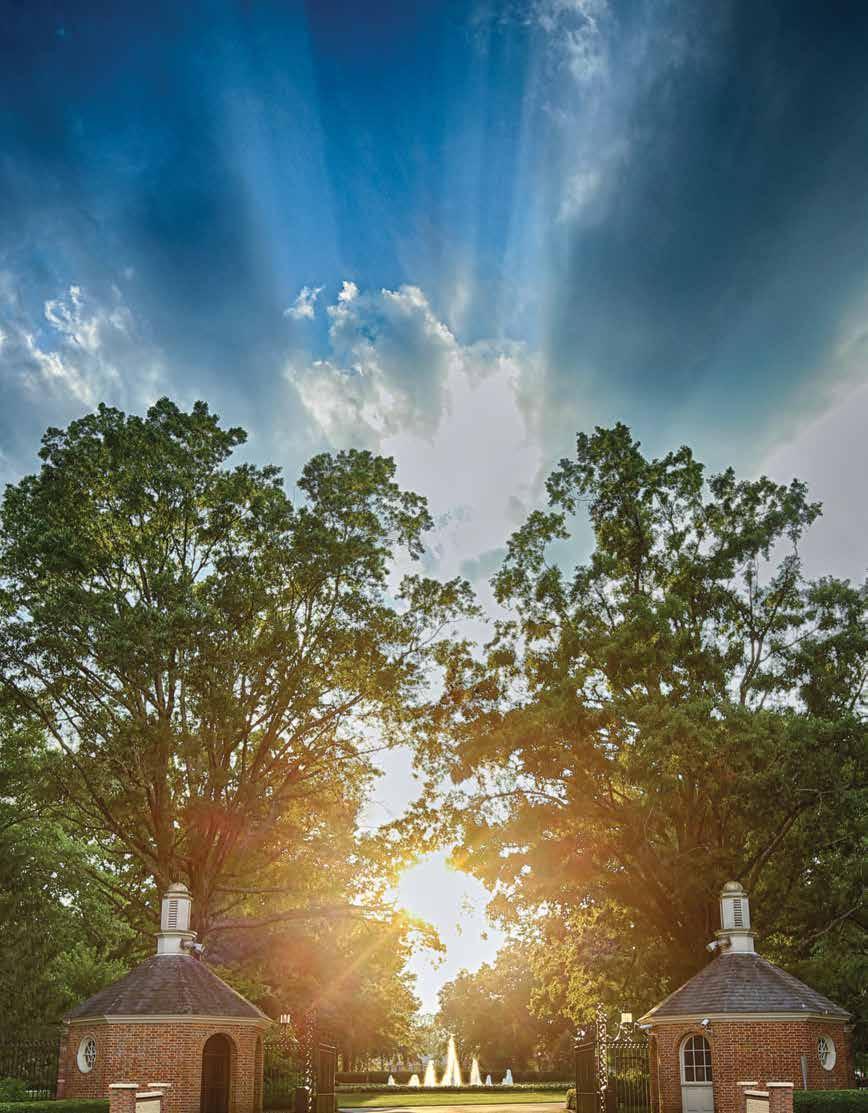
total financial assistance awarded to students by Furman
FUNDING FOR THE FURMAN ADVANTAGE EXPERIENCES
Study Away Stipends
$411,886 (2018-19)
Average financial aid package $36,797
MayX Support
$21,216 (2018-19)
Research Stipends
$1.7 MILLION (2018-19)
Joseph Vaughn Scholarship
$1 MILLION ANNUAL AWARDS

For Robert ’83 and Margaret Hill ’83, investing in the Office for Innovation and Entrepreneurship will allow them to help provide students with opportunities they might not find at another university. The newly established initiative aims to foster entrepreneurialism at Furman by addressing workforce trends and contributing to the local and regional community.
“Giving to the Innovation and Entrepreneurship initiative helps ensure students will learn and grow alongside supportive faculty and staff and in the broader community,” said Robert Hill, who is chairman of the Leadership Council for the initiative. “The Furman family has a responsibility and an opportunity to invest in our students, and this is a wonderful way to help them create a better world through their innovative ideas and talents.”
As the university enters its next chapter, private support like the Hills’ is more important than ever. Giving through Furman will make it possible for students to make their own mark on the world. Together, we can empower them — today and for years to come.
The investment return of the endowment pool for the fiscal year ending June 30, 2018, was +9.2%. This compares to a global 70% stocks/30% bonds portfolio benchmark return of 7.9%.
In the figure at left, Furman’s endowment pool return, as of June 30, 2018, is compared to a globally diversified 70% stocks/30% bonds portfolio and the Furman University Policy Index. Furman’s annualized returns for the three-year, five-year and 10-year periods are 6.8%, 7.5% and 6.2%, respectively.
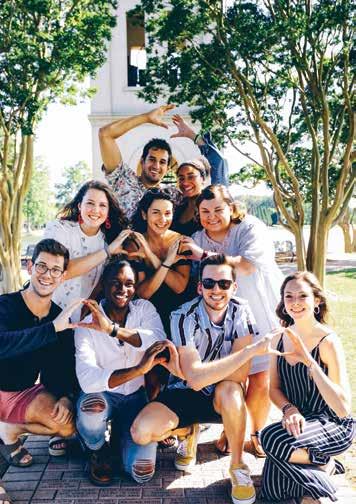
furman.edu
© 2019 Furman University. Furman University does not unlawfully discriminate on the basis of race, color, national origin, sex, sexual orientation, gender identity, disability, age, religion, veteran status or any other characteristic or status protected by applicable local, state or federal law in admission, treatment, or access to or employment in, its programs and activities.